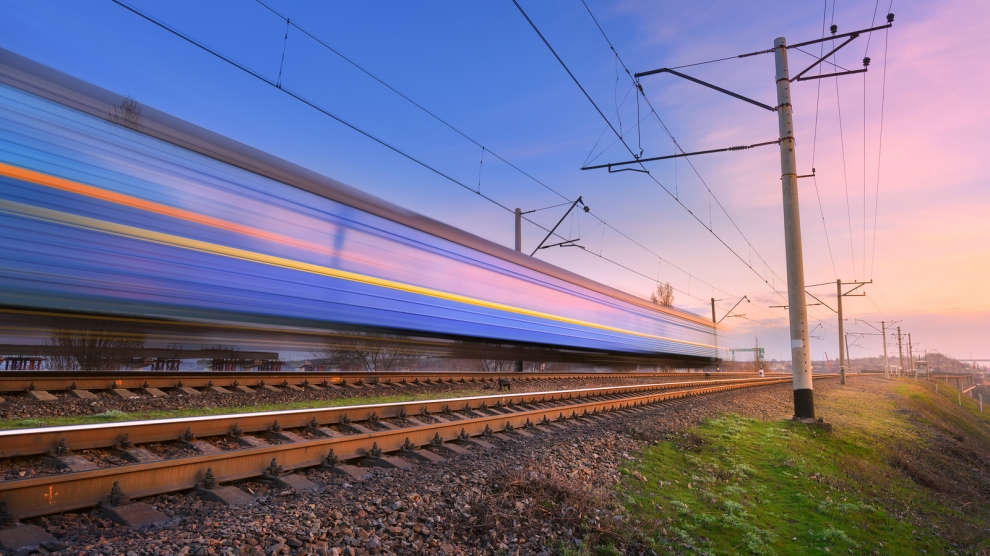The Ukrainian government has come up with yet another new initiative to modernise the country’s economy and show its commitment towards reform: letting Germany run its railways.
Speaking at the World Economic Forum in Davos, Ukraine’s prime minister Oleksiy Honcharuk said that his government wanted to transfer the management of Ukrzaliznytsia, the country’s national railway company, to German railway operator Deutsche Bahn.
Mr Honcharuk announced that the Ukrainian and German governments had signed a corresponding memorandum to transfer the state company’s management for 10 years.
According to the PM, the decision was made to create “an ecosystem solution that must show Ukraine is unprecedentedly open to the world [and] to new standards.”
The Ukrainian government also hopes that “German effectiveness” will help the company curb corruption.
“Of course, details have yet to be agreed. Official documents have yet to be signed, but a political decision on this has already been taken, and this is already a huge step,” Ukrainian news agency Ukrinform quoted him as saying.
He also made clear that the transfer of management would be temporary. “Ukraine will retain full control over Ukrzaliznytsia,” he explained, noting that German specialists will work on reforming the railway company’s structure and management mechanisms.
However, Deutsche Welle has reported that the German railway operator has no plans to take control over Ukrzaliznytsia’s management, but will offer advice and support.
“DB Engineering and Consulting, the engineering and consulting company of Deutsche Bahn on infrastructure, mobile and transport projects, will advise and support the Ukrainian railway in business and technical matters,” the company said in a statement.
Last summer, the cabinet of ministers of Ukraine approved the government’s strategy for Ukrzaliznytsia until 2024, which includes the development of an investment programme, the rationalisation of the railway network and the company’s business units, as well as introducing new transportation and security management systems.
The Ukrainian government’s decision is in line with reforms previously announced by Mr Honcharuk, such as the privatisation and modernisation of the country’s state-run enterprises.
“In less than four months [since the government took office], more state-owned objects have been transferred for privatisation than in all 28 years of [Ukraine’s] independence,” the Ukrainian PM said on December 27.
Last October, the Ukrainian government unveiled an ambitious, five-year plan aimed at developing the country’s economy that aims for 40 per cent of GDP growth in the next five years. To achieve this target, the Ukrainian economy has to expand by at least seven per cent between 2021 and 2024, for which the government needs to draw at least 50 billion US dollars in investment.
A recently updated forecast from the World Bank expects Ukraine’s economy to grow by 3.7 per cent in 2020 and 4.2 per cent in both 2021 and 2022.
Endorsing the government’s pro-market agenda, the International Monetary Fund on December 8 approved a 5.5 billion US-dollar stand-by arrangement for three years, widely seen as an endorsement for what IMF managing director Kristalina Georgieva called “impressive progress”.

